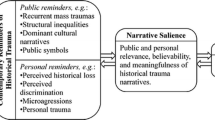Abstract
The difficult adjustment of Cambodian refugees to life in the United States is no more evident than in their use of the biomedical health care system. When forced by circumstances to seek Western medical care, they often perceive the cause of their symptoms to be untreatable by this technological modality of healing. This attitude is understandable because the lengthy and destructive civil war they survived also extinguished their medical system. Many of the refugees had no contact with Western-style health care until they reached the camps in Thailand. As a result, the Cambodians have had to develop ways to integrate centuries-old indigenous and self-care practices, that they know well, with the modern health care services and technologies, that are new to them. In San Diego they have sought what is for them a new kind of provider, Vietnamese physicians who practice medicine that is culturally appropriate and convenient. Although these multiple systems satisfy them in many ways, a significant number of Cambodians are still not getting well. The constant pursuit of healing is time-intensive and expensive, and ignores the emotional effects of refugee status on physical health.
Similar content being viewed by others
REFERENCES
Catanzaro A, Moser R: Health status of refugees from Vietnam, Laos, and Cambodia. JAMA 1982; 247:1303-8.
Gong-Guy E: The California Southeast Asian Mental Health Needs Assessment. Oakland: Asian Community Mental Health Services, 1987
Meinhardt K, et al: Southeast Asian refugees in the “Silicon Valley”: The Asian health assessment project. Amerasia 1985; 12:43-65.
Molina CD, Molina MM, Molina JM: Intestinal parasites in Southeast Asian refugees two years after immigration. West J Med 1988; 149:422-425
Pickwell S: The incorporation of family primary care for Southeast Asian refugees in a community-based mental health facility. Arch Psychiatri Nurs 1989; 3:173-177
Rumbaut R: How well are Southeast Asian refugees adapting? Business Forum 1985a; 10:26-31
Rumbaut R: Mental health and the refugee experience: a comparative study of Southeast Asian refugees. In Owan T, Nguyen TD eds: Southeast Asian Mental Health: Treatment, Services, Prevention, and Research. Washington, D.C.: U.S. Government Printing Office, 1985b
Welaratna U: Cambodian refugees: Factors affecting their assimilation and English language acquisition. The Catesol Journal 1988; November: 17-27
D'Avanzo CE, Frye B, Froman R: Stress in Cambodian refugee families. Image 1994; 26:101-105
Haines DW: Southeast Asian refugees in the United States—An overview. Migration Today 1983; 11:9-13
Jones W, Strand P: Adaptation and adjustment problems among Indochinese refugees. Sociology and Social Research 1986; 71:42-46
D'Avanzo CE, Frye B, Froman R: Culture, stress and substance use in Cambodian refugee women. J Studies Alcohol 1994; 55:420-426
Uba L, Chung, RC-Y: The relationship between trauma and financial and physical well-being among Cambodians in the United States. J Gen Psychol 1991; 118:215-225
Rumbaut RG, et al: The politics of migrant health care: a comparative study of Mexican immigrants and Indochinese refugees. In Wertz DC, ed: Research in the Sociology of Health Care Greenwich, CT: JAI Press, 1988, pp 142-202
Nicassio PM: The psychosocial adjustment of the Southeast Asian refugees. J Cross-Cultural Psychol 1985; 16:153-173
Baughan D, et al: Primary care needs of Cambodian refugees. J Fam Pract 1990; 30:565-568
Rasbridge LA: Health and illness among refugees: Short and long term consequences of resettlement. Paper presented at the 1997 Society for Applied Anthropology meeting in Seattle March 3, 1997.
Shepherd J, Faust S: Refugee health care and the problem of Suffering. Bioethics Forum 1993; 9:3-7
Carlsen EB, Rosser-Hogan R: Mental health status of Cambodian refugees ten years after leaving their homes. Am J Orthpsychiatr 1993; 63:223-231
Gong-Guy E, Cravens RB, Paterson TE: Clinical issues in mental health services delivery to refugees. Am Psychologist 1991; 46:642-648
Morbidity and Mortality Weekly Report. Health status of Kampuchean refugees—Sakaeo, Thailand. 1979; 28:545-547
Boothy N: The horror, the hope. Natural History 1983; 1:64-70
Hiegal JP: The ICRC and traditional Khmer medicine. International Review of the Red Cross 1981; 21:251-262
Sundhagul M: Situation and role of refugee women: experiences and perspectives from Thailand. International Migration 1981; XIX(1/2):102-107
Breitenbucher RB: Indo Chinese refugees—medical care of Southeast Asians—Compliance. Minnesota Medicine 1980; 63:41-44
Hoang GN, Erickson RV: Cultural barriers to effective medical care among Indochinese patients. Annua Rev Med 1985; 36:229-239
Muecke MA: In search of healers—Southeast Asian refugees in the American health-care system. West J Med 1983; 139:835-840
Tran MT: Indochinese Patients. Washington, D. C.: Action for Southeast Asians, Inc, 1980
Yoon SY: A legacy without heirs: Korean indigenous medicine and primary health care. Soci Sci Med 1983; 17:1467-1476
Kulig JC: Cambodian refugees' family planning knowledge and use. J Adv Nur 1995; 22:150-157
Handelman L, Yeo G: Using explanatory models to understand chronic symptoms of Cambodian refugees. Fam Med 1996; 28:271-275
Shimada J, et al: “Strong Medicine”: Cambodian views of medicine and medical compliance. J Gen Internal Med 1995; 10:369-374
Author information
Authors and Affiliations
Rights and permissions
About this article
Cite this article
Pickwell, S.M. Multilevel Healing Pursuits of Cambodian Refugees. Journal of Immigrant Health 1, 165–179 (1999). https://doi.org/10.1023/A:1022017120026
Issue Date:
DOI: https://doi.org/10.1023/A:1022017120026




